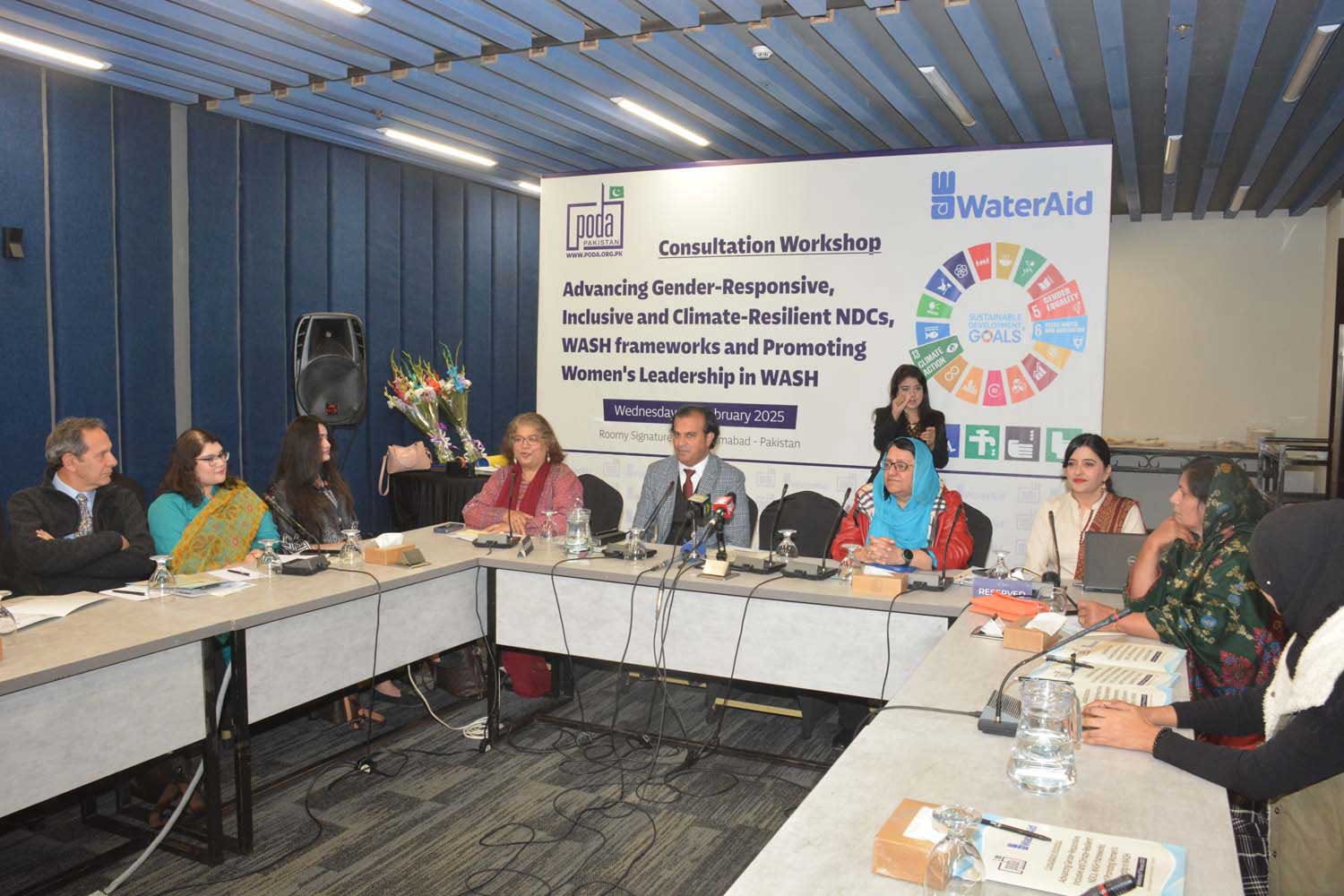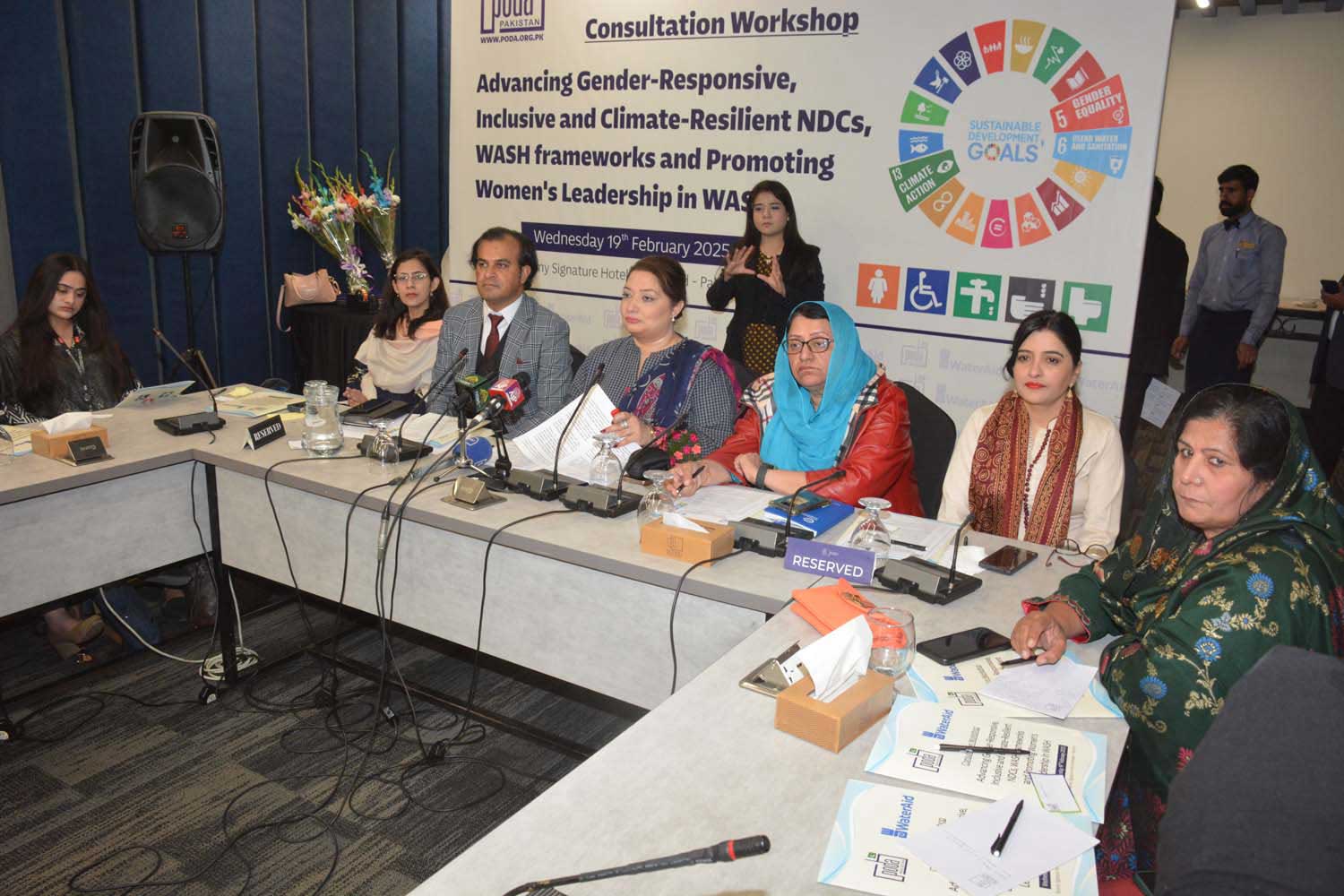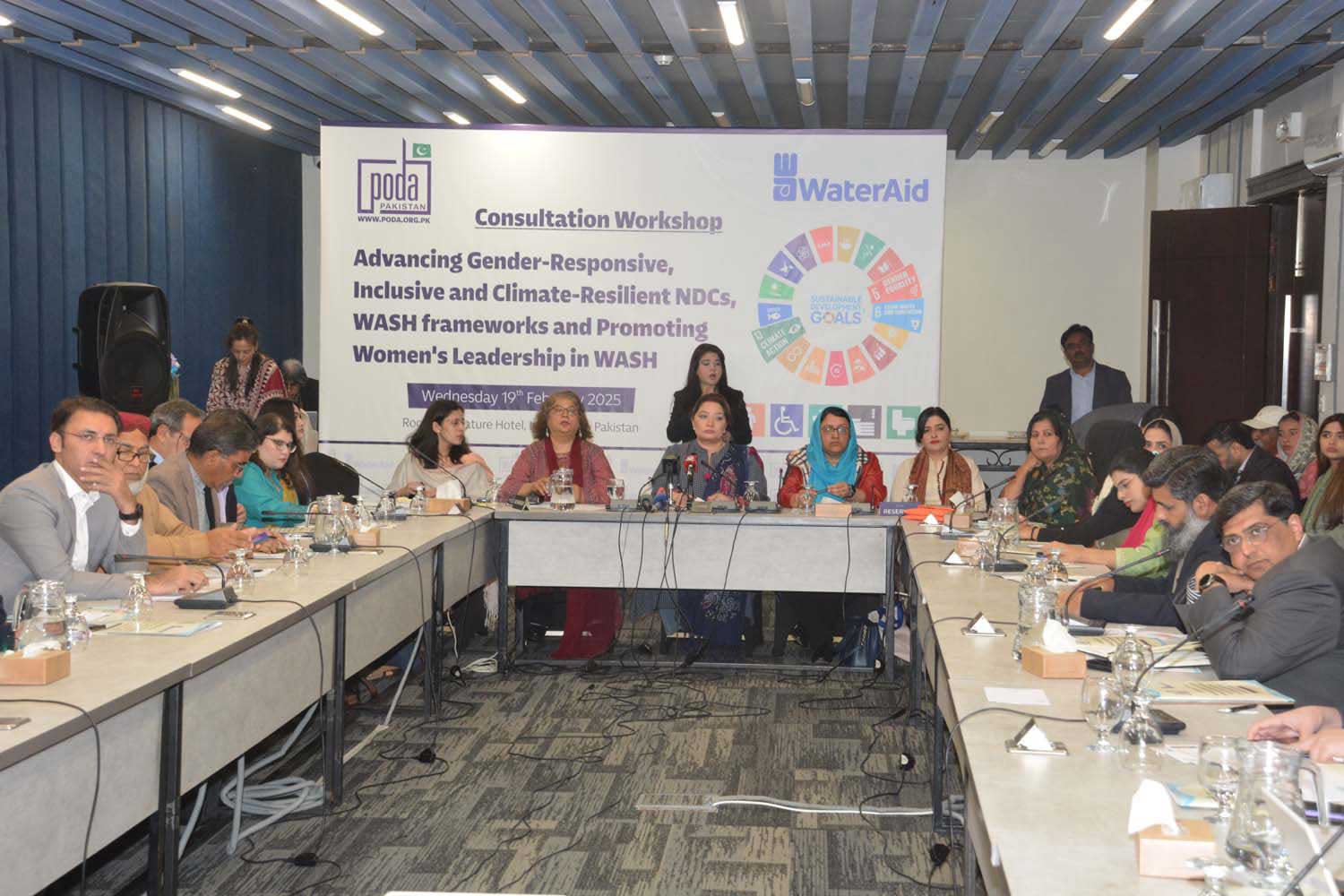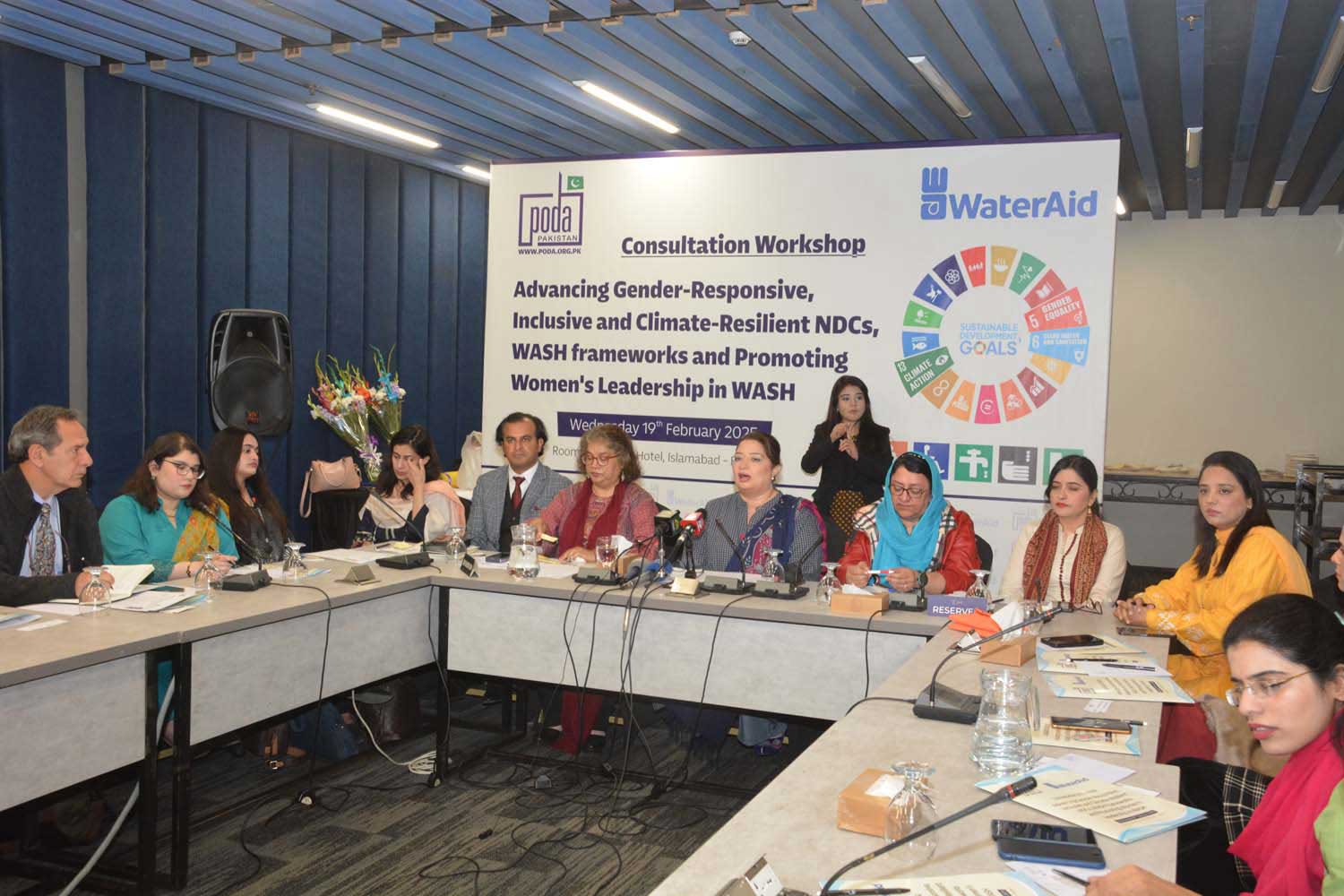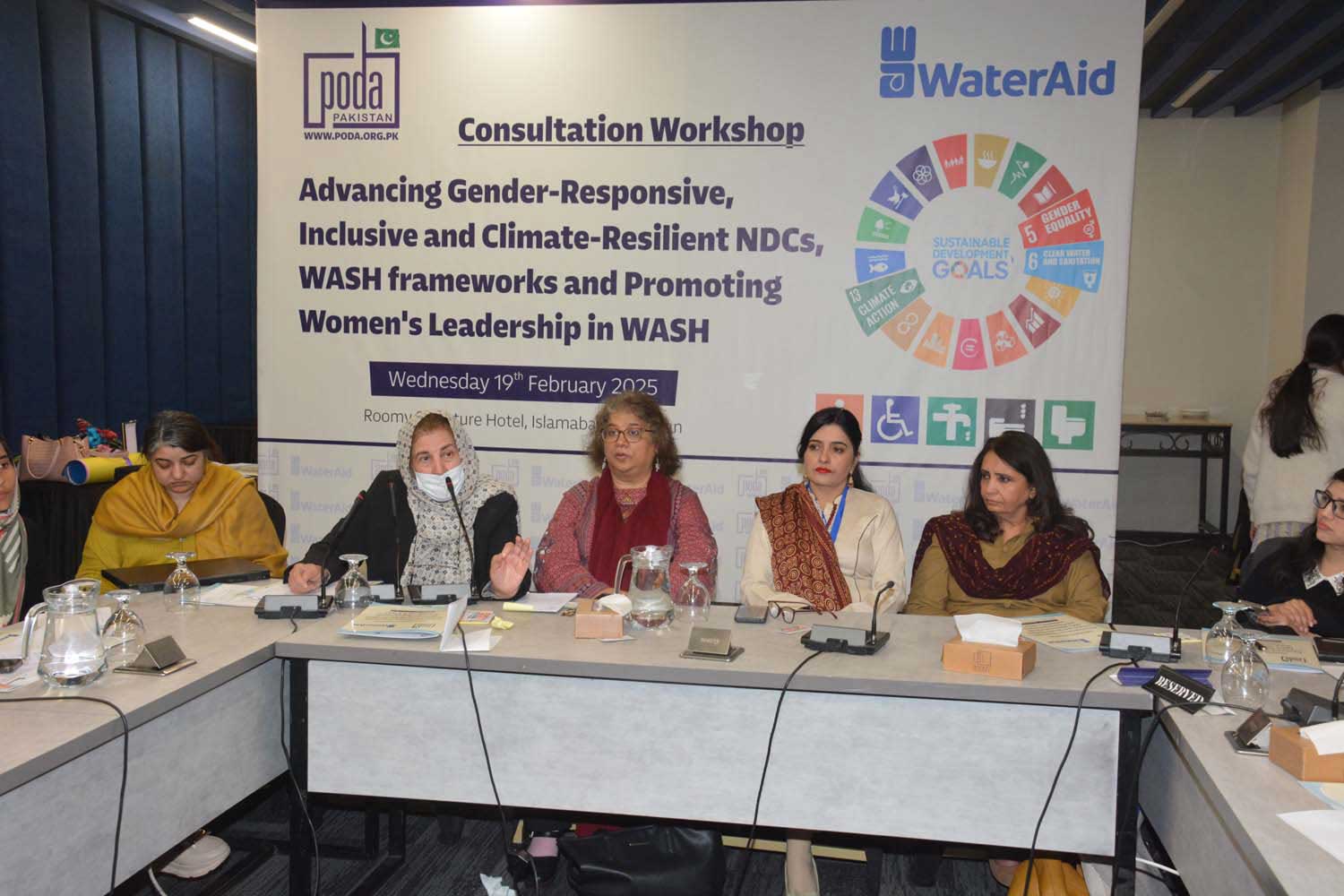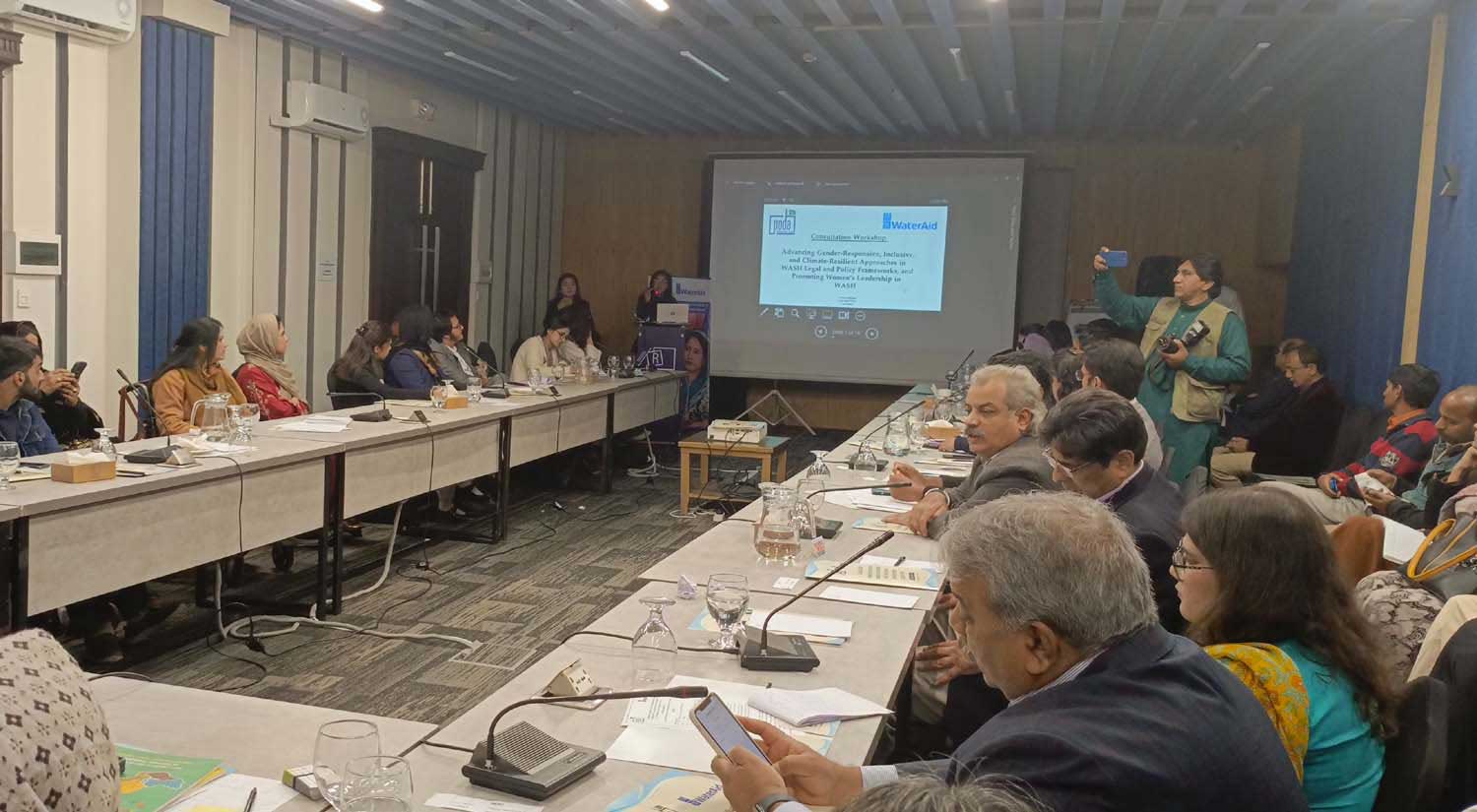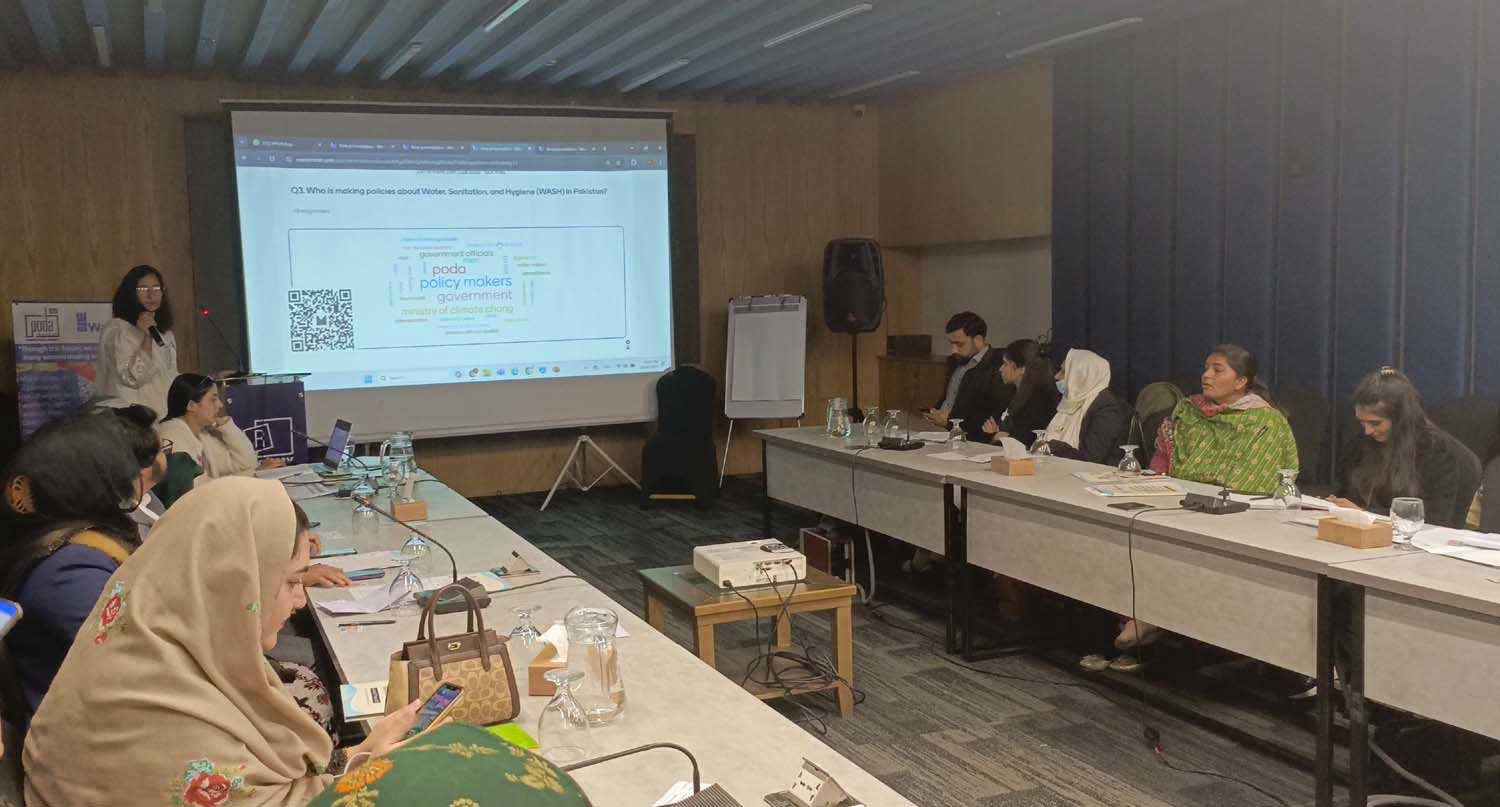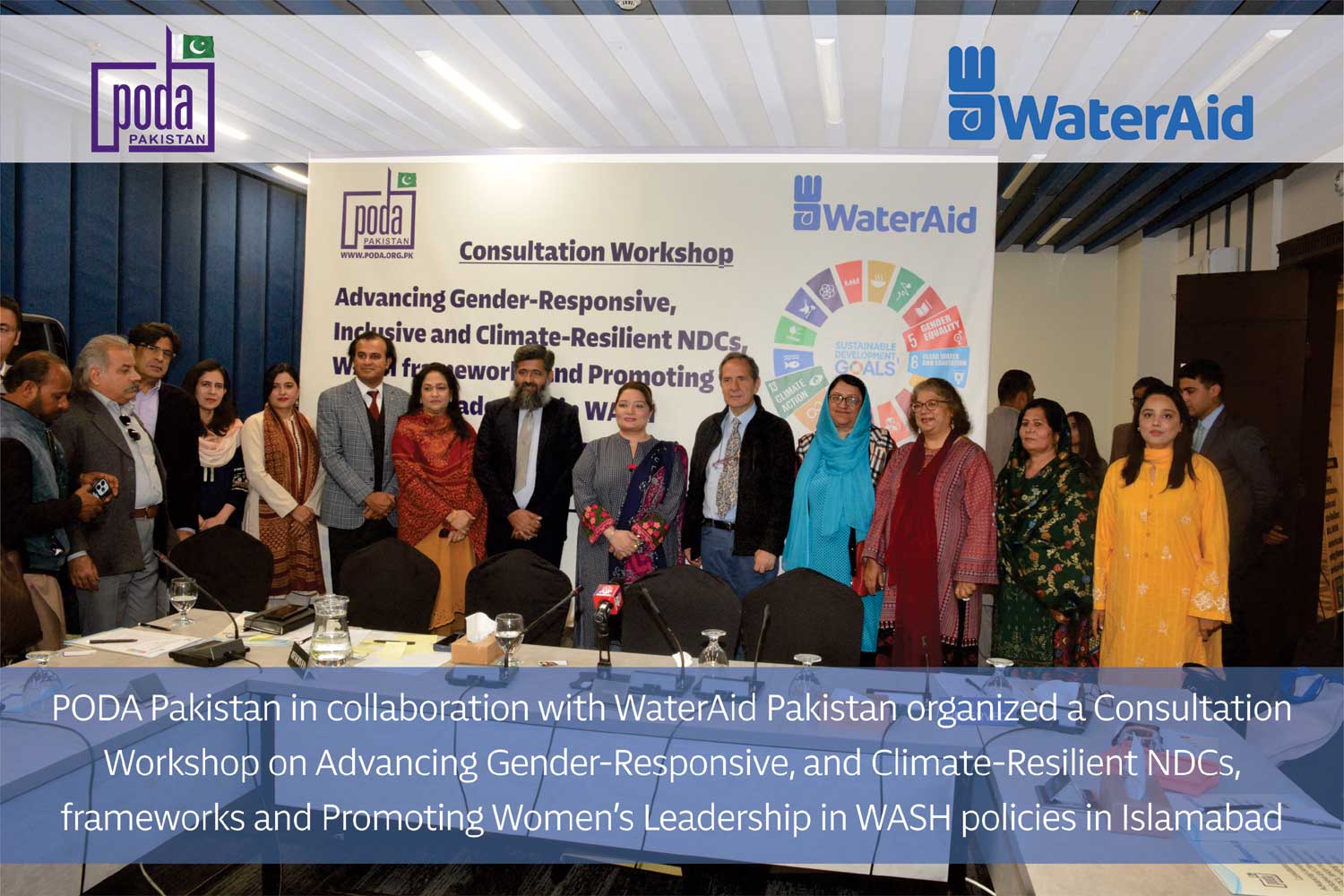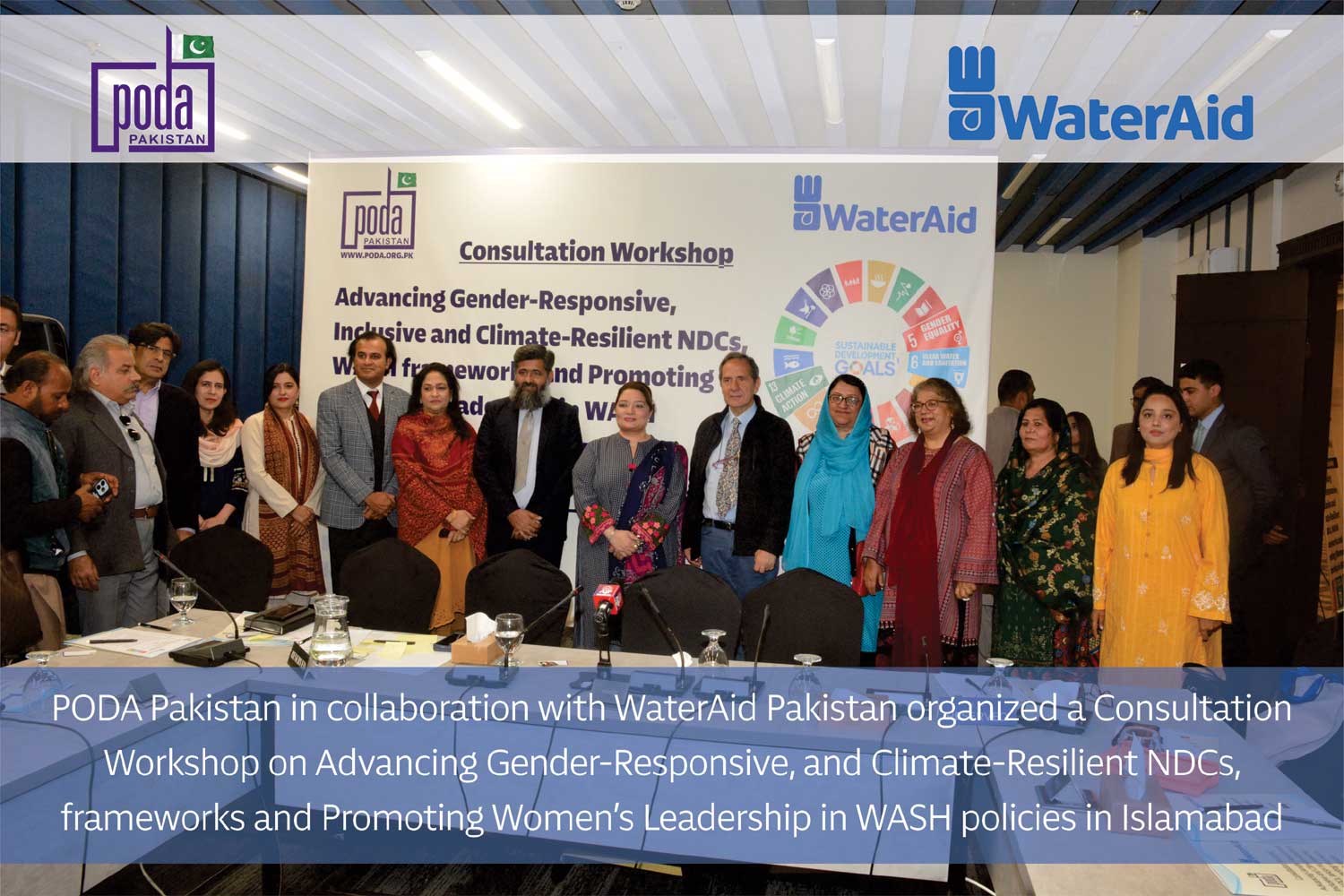
Experts Call for Gender-Responsive Water Policies
Islamabad, 19 February, 2025: Speakers and participants at the joint PODA Pakistan and WaterAid Pakistan consultative workshop stressed the importance of policymakers, politicians, and other stakeholders actively engaging women in all aspects of water resource management and related decision-making processes. A diverse gathering of stakeholders from various sectors convened at a local hotel, united by a common goal to amplify the voices and roles of women and vulnerable populations in addressing the pressing challenges of water management and governance in Pakistan, a country grappling with severe water stress, ranking 14th globally in terms of water scarcity. This workshop was jointly organized by the Potohar Organization for Development Advocacy (PODA) and WaterAid Pakistan here at a local hotel.
Speaking on the occasion in her keynote address, Ms. Romina Khurshid Alam, Coordinator to Prime Minister on Climate Change and Environmental Coordination, Government of Pakistan said that despite Pakistan’s minimal contribution to climate change, various organizations are proactively working together to safeguard the country’s future. Pakistan is facing significant environmental challenges from water scarcity to rising temperatures. The media has a vital role in ensuring that these challenges are understood and acted upon by citizens and decision-makers alike, she added.
“It is ironic that women, who are disproportionately affected by climate-related disasters, are often absent from different phases and levels of decision-making altogether where policies are formulated and funds are allocated,” said Ms. Sameena Nazir, Executive Director of PODA.
Mian Muhammad Junaid, Country Director of WaterAid Pakistan, emphasized the crucial role of all marginalized segments of society, including women, persons with disabilities (PWDs), and transgender individuals, in shaping effective WASH-related policies.
Highlighting WaterAid’s approach to gender equality in WASH, Gender Advisor Ms. Raheema Panhwar emphasized that “we must break taboos surrounding critical issues like menstrual hygiene management, ensuring everyone has access to safe, dignified hygiene and sanitation facilities and services, leaving no one behind.”
